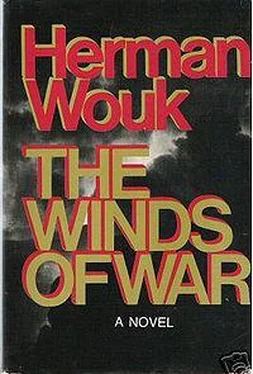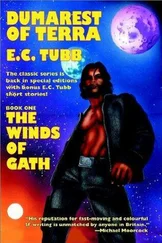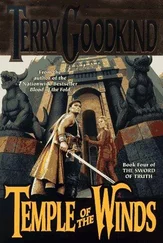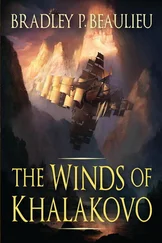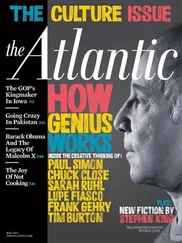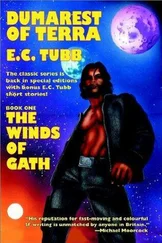Herman Wouk - The Winds of War
Здесь есть возможность читать онлайн «Herman Wouk - The Winds of War» весь текст электронной книги совершенно бесплатно (целиком полную версию без сокращений). В некоторых случаях можно слушать аудио, скачать через торрент в формате fb2 и присутствует краткое содержание. Год выпуска: 1971, Издательство: Collins, Жанр: Историческая проза, на английском языке. Описание произведения, (предисловие) а так же отзывы посетителей доступны на портале библиотеки ЛибКат.
- Название:The Winds of War
- Автор:
- Издательство:Collins
- Жанр:
- Год:1971
- ISBN:нет данных
- Рейтинг книги:4 / 5. Голосов: 1
-
Избранное:Добавить в избранное
- Отзывы:
-
Ваша оценка:
- 80
- 1
- 2
- 3
- 4
- 5
The Winds of War: краткое содержание, описание и аннотация
Предлагаем к чтению аннотацию, описание, краткое содержание или предисловие (зависит от того, что написал сам автор книги «The Winds of War»). Если вы не нашли необходимую информацию о книге — напишите в комментариях, мы постараемся отыскать её.
About the Author
Herman Wouk's acclaimed novels include the Pulitzer-Prize winning
;
;
;
;
;
; and
.
The Winds of War — читать онлайн бесплатно полную книгу (весь текст) целиком
Ниже представлен текст книги, разбитый по страницам. Система сохранения места последней прочитанной страницы, позволяет с удобством читать онлайн бесплатно книгу «The Winds of War», без необходимости каждый раз заново искать на чём Вы остановились. Поставьте закладку, и сможете в любой момент перейти на страницу, на которой закончили чтение.
Интервал:
Закладка:
“You ought to go over to town, sir,” Byron said. “They’re laying the track. Hundreds of truckloads of this golden-red earth, all around the Piazza del Campo.”
“Yes,” Natalie said, “the way they’re decorating up the streets is quite amazing. And wherever you look the flag-wavers are practicing -”
“I’m taking off two whole workdays for the races themselves. That’s plenty,” Jastrow said severely.
“You know what?’ Byron said. “This whole thing is utterly idiotic.”
Natalie looked at him with startled, excited eyes, touching a handkerchief to her sweaty forehead. It was the day of the first Palio, and they stood on the balcony of the archbishop’s palace, watching the parade. The great façade of the cathedral gave a bit of shade at one end of the balcony, where Jastrow in his big yellow Panama hat and white suit stood talking with the archbishop. Byron and Natalie were crowded among privileged onlookers at the other end, in the hot sun. Even in her sleeveless light pink linen dress, the girl was perspiring, and a seersucker jacket and silk tie were making Byron acutely uncomfortable.
Below, the Caterpillar marchers in green and yellow costumes — puffed sleeves and trunks, colored hose, feathered hats — were leaving the thronged cathedral square, waving great banners to cheers and applause from the crowd; and the red-and-black Owl company was coming in, repeating the same flag stunts: intertwining whorls, two flags flung pole and all in the air crisscrossing, flag-wavers leaping over each other’s poles while keeping their banners in fluid motion.
“Idiotic?” Natalie said. “I was just deciding it’s rather magical.”
“What is? They do the same things over and over. We’ve been here for hours. There’s still the Porcupine, the Eagle, the Giraffe, and the Forest to come and show off with their flags. I’m roasting.”
“Ah, Byron, it’s the liquid flow of color, don’t you see, and the faces of these young men. So help me, these people look more natural in medieval togs than in their workaday clothes. Don’t they? Look at those long straight noses, those deep-set sad big eyes! Maybe they’re really a remnant of the Etruscans, as they claim.”
“Six months of work,” Byron said. “Special buildings and churches for Unicorns, Porcupines, and Giraffes. Thousands of costumes, a whole week of nothing but ceremonies, general marching hither and yon, trumpeting and drumming and trial runs, and all for one crooked race of decrepit nags. In honor of the Virgin, no less.”
“Oh, beautiful,” Natalie exclaimed, as two Owl flags flew high in the air in crossing arcs, and the wavers caught them and whirled red-and-black arabesques to the applause of the crowd.
Byron went on, mopping his face, “I was in the Goose church today. They brought the horse right inside, up to the very altar to be blessed. I didn’t believe the books, but I saw it happen. The priest laid a crucifix on its nose. The horse had more sense than the people. He didn’t misbehave, but I guess that finished the Palio for me.”
Natalie glanced at him, amused. “Poor Briny. Italian Christianity really troubles your soul, doesn’t it? Leslie was right, you’re simply a Protestant.”
“Does a horse belong in a church?” Byron said.
The sun was low when the parade ended. In the short walk from the cathedral to the Piazza del Campo, Jastrow grew nervous. A thick crowd jostled down the narrow street, all in good humor, but shouting, gesturing, and hurrying between the high red-brown stone walls of the old palazzos. More than once the little professor stumbled and tottered. He clung to Byron’s arm. “Do you mind? I’ve always had a slight fear of crowds. People mean no harm, but somehow they don’t notice me.” They halted in a crush at a low arch and slowly squeezed through.
“Good gracious,” Jastrow said as they emerged on the earth of the race track. “The piazza’s transformed!”
“They’ve been working on it for weeks,” Byron said. “I told you.”
Siena’s main piazza was one of the sights of Italy. The forgotten town planners of the Middle Ages had designed a memorably beautiful open space, hemmed in by a semi-circular sweep of reddish palazzos and the imposing, almost straight façade of the fourteenth-century town hall; all overarched by the blue sky of Tuscany, and pierced heavenward by the red stone bell tower of the town hall, more than three hundred fifty feet high. All year round the vast shell-shaped space was empty except for market stalls and scattered foot traffic; and the ancient buildings that ringed it seemed abandoned or asleep.
Today, in the golden light of a late afternoon sun, it was a sea for people, surging and roaring inside a ring of wooden barriers. Between these barriers and the palazzo walls lay a track of earth, and against the walls were steep banks of temporary benches. Faces crowded at every window of every building around the piazza; flags and rich hangings decorated the palazzos. The benches were jammed; all the roofs were jammed; the great central space looked full, and yet from half a dozen narrow streets people were streaming across the track and jamming themselves in. The parade was now going around the track of earth, and all the contrade at once were doing the flag whorls, the flings, the arabesques to continuous plaudits of the throng and the cacophonous blare of many brass bands.
Byron led the way to their seats, still holding Jastrow’s thin arm. “Well, hasn’t the archbishop done us proud!” said the professor, as they settled on a narrow, splintery plank, directly below the judges’ stand. “One couldn’t have a better view of the thing.” He laughed without reason, obviously feeling better out of the press of bodies.
“See the mattresses?” said Natalie gaily. “There they are, down at the corners.”
“Oh, yes. My lord, what an extraordinary business.”
The noise of the crowd rose into a general cheer. A wooden cart, drawn by four white Tuscan oxen with giant curved horns, was entering the track surrounded by marchers in rich costume. On a tall pole in the cart swayed the Palio. “Why, it’s an Assumption,” said Jastrow, peering through small binoculars at the narrow painted cloth. “Naïve, but not bad at all.”
Around the piazza the cart slowly rolled, with helmeted policemen behind it driving the crowd from the track, while sweepers cleared up papers and trash. By now the paved square was one dense mass of white shirts, colored dresses, and dark heads, bringing out the half-moon shape of the track, and its danger. The red palazzos sloped downward to the town hall, where a straight street sliced off the broad curve. Heavy mattresses padded the outer barriers at these sharply cut corners. Even at the trial runs, Byron and Natalie had seen horses thud against the mattresses and knock their jockeys senseless.
The sunset light on the façade of the Palazzo Pubblico, the town hall, was deepening to a blood color. The rest of the piazza was in shadow, and a heavy bell was tolling in the tower. From the town hall a long fanfare sounded. The crowd fell quiet. Trumpets struck up the old Palio march that had been echoing all week in Siena’s streets. Out of the palazzo courtyard trotted the caparisoned racehorses with their flamboyantly costumed jockeys.
Natalie Jastrow’s fingers slid into Byron’s and clasped them, and for a moment she put her cheek, cool, bony, and yet soft, against his. “Idiotic. Briny?” she murmured.
He was too delighted with the contact to answer.
The starting line was directly in front of them, and behind them, above the judges’ stand, the Palio hung on its pole, stirring in a cool breeze blowing across the great amphitheatre. An ancient contraption of wood and rope controlled the start. To line up the dancing, overwrought animals inside the ropes proved almost impossible. The harried creatures capered in and out, they turned, reared, stumbled, and broke away twice in false starts. At last the ten horses went thudding off in a pack, with the jockeys clubbing wildly at the creatures and at each other. A yell rose above the steady roar, as two horses went down at the first set of mattresses. After that Byron lost track of the race. While he watched an unconscious jockey being dragged off the dirt, another wild yell of the crowd told of more mishaps, which he couldn’t see. The pack came racing by in a club-waving dirt-flying jumble, strung out over five or six lengths. A riderless horse galloped well up among them, dripping foam, its reins dangling.
Читать дальшеИнтервал:
Закладка:
Похожие книги на «The Winds of War»
Представляем Вашему вниманию похожие книги на «The Winds of War» списком для выбора. Мы отобрали схожую по названию и смыслу литературу в надежде предоставить читателям больше вариантов отыскать новые, интересные, ещё непрочитанные произведения.
Обсуждение, отзывы о книге «The Winds of War» и просто собственные мнения читателей. Оставьте ваши комментарии, напишите, что Вы думаете о произведении, его смысле или главных героях. Укажите что конкретно понравилось, а что нет, и почему Вы так считаете.
